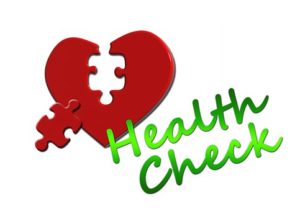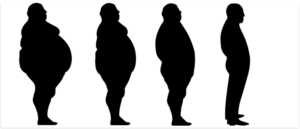Unlocking Health: The Transformative Power of Quality Sleep

In our fast-paced world, where the hustle and bustle often take center stage, one crucial element frequently gets pushed to the back burner: sleep. We’ve all heard the phrase “I’ll sleep when I’m dead,” but what if we told you that prioritizing quality rest could be your secret weapon for a healthier, happier life? Imagine waking up refreshed, energized, and ready to conquer your day – that’s the magic of restorative sleep! In this blog post, we’ll explore how embracing the transformative power of quality slumber can unlock not just better health but also enhance your mood, boost productivity, and even elevate your relationships. So, grab a cozy blanket and settle in as we embark on a journey through the science of sleep and discover how making it a priority can lead to profound changes in every aspect of your life.
Sleep Boosts Your Immune System
One of the first things you’ll notice after a poor night’s sleep is feeling run down. That’s because sleep plays a massive role in supporting your immune system. When you’re well-rested, your body is better equipped to fight off illnesses and infections. Lack of sleep, on the other hand, can weaken your immune response, leaving you more susceptible to colds, flu, and even chronic conditions like heart disease. Studies have shown that people who sleep less than 6 hours a night are more likely to develop illnesses than those who sleep 7-9 hours. So, if you want to stay healthy, getting enough sleep is a simple but powerful way to give your immune system a boost.
Better Sleep Means Better Mental Health
Mental health and sleep are tightly connected – when you’re not getting enough rest, your mental well-being can take a hit. Sleep deprivation has been linked to an increased risk of anxiety, depression, and other mood disorders. A good night’s sleep helps regulate your emotions, improve your mood, and enhance your cognitive abilities. Sleep also helps your brain process and manage stress more effectively. When you’re well-rested, you’re better able to handle life’s challenges and keep your stress levels in check. In contrast, a lack of sleep can make you irritable, anxious, or overwhelmed. So, if you’re struggling with mental health concerns, focusing on improving your sleep habits can have a profound impact on your overall emotional state.
Improved Physical Performance and Energy
Getting enough rest is crucial for physical performance. Whether you’re an athlete or just someone who likes to stay active, sleep is the time when your body recovers and rebuilds muscle tissue. During deep sleep, your body releases growth hormones that help repair and strengthen muscles, which is key for anyone who exercises regularly. In addition to physical recovery, sleep also boosts your energy levels. When you sleep well, you wake up feeling refreshed and ready to tackle the day ahead. On the flip side, poor sleep can lead to sluggishness, reduced endurance, and an increased risk of injury. So, if you want to perform at your best, whether in the gym or during daily activities, sleep is an essential factor to consider.
Sleep Helps with Weight Management
If you’re struggling with weight management, improving your sleep might be just what you need. Research has shown that poor sleep can lead to an imbalance in the hormones that control hunger, causing an increase in appetite and cravings for unhealthy foods. Lack of sleep can also affect how your body processes and stores fat, leading to weight gain over time. When you prioritize sleep, your body’s hunger hormones (like ghrelin and leptin) are better regulated, which can help curb overeating and cravings. Getting enough rest also allows your body to metabolize food more efficiently, supporting weight loss and healthy metabolism. So, if you’re aiming for a healthier weight, sleep should be part of your plan.
Improved Focus, Memory, and Decision-Making
Sleep isn’t just essential for physical health – it’s also crucial for brain function. Getting adequate rest helps improve your concentration, memory, and decision-making skills. During sleep, your brain processes and consolidates the information you’ve learned throughout the day, …
















 While some may not know the term, almost everyone is familiar with the hairstyle. Hair twisting is a popular way to style natural hair. It involves taking small sections of hair and twisting them around each other. This can be done with or without products, but many people use some type of product to help keep their twists in place. Once the hair is twisted, it can be left as is or styled in various ways. For example, the twists can be pulled back into a ponytail or bun. Some people also like to wear their twists down and let them cascade over their shoulders.
While some may not know the term, almost everyone is familiar with the hairstyle. Hair twisting is a popular way to style natural hair. It involves taking small sections of hair and twisting them around each other. This can be done with or without products, but many people use some type of product to help keep their twists in place. Once the hair is twisted, it can be left as is or styled in various ways. For example, the twists can be pulled back into a ponytail or bun. Some people also like to wear their twists down and let them cascade over their shoulders.



 As reputation is mentioned as one of the primary considerations to make when finding a PPE supplier, it is also important to consider the reputation of the individual companies. If you are buying from an online company, make sure that they have been in business for some time and can provide testimonials from their customers and examples of their work.
As reputation is mentioned as one of the primary considerations to make when finding a PPE supplier, it is also important to consider the reputation of the individual companies. If you are buying from an online company, make sure that they have been in business for some time and can provide testimonials from their customers and examples of their work.
 One of the main ways of reducing body weight and burning more calories is by exercising. Much has been said about the many ways working out and being more active is essential in reducing weight. Cardio exercises are known to be essential in burning calories. Consider incorporating various cardio exercises like running and cycling in your workout routine.
One of the main ways of reducing body weight and burning more calories is by exercising. Much has been said about the many ways working out and being more active is essential in reducing weight. Cardio exercises are known to be essential in burning calories. Consider incorporating various cardio exercises like running and cycling in your workout routine.



 Rated the best CBD oil option by users experiencing the same problem related to stress and lack of sleep. It has a broad spectrum formulation with a citrus taste and more flavor option you can consider. The concentration is also perfect for ensuring that you get the best they packed at 1000mg to 2000mg of cannabidiol. You can choose to buy in mg, which range from 0.06 to 0.005 dollars. However, if you want a more powerful product that is effective and realible, then you may want to visit
Rated the best CBD oil option by users experiencing the same problem related to stress and lack of sleep. It has a broad spectrum formulation with a citrus taste and more flavor option you can consider. The concentration is also perfect for ensuring that you get the best they packed at 1000mg to 2000mg of cannabidiol. You can choose to buy in mg, which range from 0.06 to 0.005 dollars. However, if you want a more powerful product that is effective and realible, then you may want to visit 



 condition which, may be growing. The dentist will alter the condition from becoming severe because it will be dealt with once t is discovered. Identifying a health risk early will save you money and also from the pain you will undergo when the dental condition becomes severe. The dentist will spot dental symptoms and will work on them to ensure you ate free of dental illnesses.
condition which, may be growing. The dentist will alter the condition from becoming severe because it will be dealt with once t is discovered. Identifying a health risk early will save you money and also from the pain you will undergo when the dental condition becomes severe. The dentist will spot dental symptoms and will work on them to ensure you ate free of dental illnesses. Strong and clean teeth are one of the benefits of having regular checkups by your dentist. Regular dental cleanings will allow dentist to examine your teeth and offer a polish and deep clean. For instance, if you forget to floss the dentist will remove the tartar and plaque which has put up since you had the check up last. Similarly, the dentist will be able to identify any broken tooth, tooth decay or feels which are damaged and need to be fixed. Dental checkups will enhance your smile because you will be confident with your teeth.
Strong and clean teeth are one of the benefits of having regular checkups by your dentist. Regular dental cleanings will allow dentist to examine your teeth and offer a polish and deep clean. For instance, if you forget to floss the dentist will remove the tartar and plaque which has put up since you had the check up last. Similarly, the dentist will be able to identify any broken tooth, tooth decay or feels which are damaged and need to be fixed. Dental checkups will enhance your smile because you will be confident with your teeth.



 Fortunately, yoga has the poses that can help you to achieve a flat belly. Moreover, they increase strength, endurance, and leaving you healthier and fitter. These are the five yoga poses that specifically target the belly and can help you get the flat stomach you want. It is advisable to consult your doctor before engaging in yoga for the first time.
Fortunately, yoga has the poses that can help you to achieve a flat belly. Moreover, they increase strength, endurance, and leaving you healthier and fitter. These are the five yoga poses that specifically target the belly and can help you get the flat stomach you want. It is advisable to consult your doctor before engaging in yoga for the first time.

 This is basically the artificial enlarging of the breasts by filling them up with fat or implants till they reach their desired size. Most women around the world turn to breast augmentation and are not afraid to come out of the closet and admit to having a boob job done on their chests which they feel are a disappointment to them and maybe their partners. They confess that it helps especially during sexual activity by giving pleasure and comfort to their partners who would not dare go looking for it elsewhere.
This is basically the artificial enlarging of the breasts by filling them up with fat or implants till they reach their desired size. Most women around the world turn to breast augmentation and are not afraid to come out of the closet and admit to having a boob job done on their chests which they feel are a disappointment to them and maybe their partners. They confess that it helps especially during sexual activity by giving pleasure and comfort to their partners who would not dare go looking for it elsewhere. As much as you’ve heard it from your friends and colleagues the wonders that specific doctors can perform on your presumably faulty breasts, you need to go slow and carry out thorough research in order for you to make sound decisions. Your health depends on the drastic actions you take especially when you are excited. Here’s what to look for when settling for a surgeon;
As much as you’ve heard it from your friends and colleagues the wonders that specific doctors can perform on your presumably faulty breasts, you need to go slow and carry out thorough research in order for you to make sound decisions. Your health depends on the drastic actions you take especially when you are excited. Here’s what to look for when settling for a surgeon;

 The best solution to excessive fat is one that can help you to avoid recurrence. It is frustrating when you use a program to get rid of these deposits only for them to start building back after not so long. It means that you will have to keep going through the processes every time and therefore, it can be turning. There are products that will help you to remain slim for longer. However, you also need to watch your lifestyle and change your diet so as to be successful when doing this. You have to fight the fats from all aspects to be successful.
The best solution to excessive fat is one that can help you to avoid recurrence. It is frustrating when you use a program to get rid of these deposits only for them to start building back after not so long. It means that you will have to keep going through the processes every time and therefore, it can be turning. There are products that will help you to remain slim for longer. However, you also need to watch your lifestyle and change your diet so as to be successful when doing this. You have to fight the fats from all aspects to be successful.



 One’s pillow and its usage will have a huge difference when it comes to sleeping position. There are basics of the pillow that one needs to use. The pillow should not be thick nor too soft. The pillow should be able to provide proper and enough support on the neck that it can remain in a neutral position while one is sleeping. The pillow should be kept underneath one’s neck and head and not under one’s shoulders.
One’s pillow and its usage will have a huge difference when it comes to sleeping position. There are basics of the pillow that one needs to use. The pillow should not be thick nor too soft. The pillow should be able to provide proper and enough support on the neck that it can remain in a neutral position while one is sleeping. The pillow should be kept underneath one’s neck and head and not under one’s shoulders.

 Missing teeth
Missing teeth

 utable store
utable store



 at will happen when you report at the treatment center. Remember that this will be the first meeting with a skilled therapist. He or she will ask you various questions, some that are personal. You need to cooperate as much as you can. During the intake, you will also know what your program entails. The therapist will diagnose your drug and alcohol addiction problems and any other coexisting psychological disorders by using standard criteria.
at will happen when you report at the treatment center. Remember that this will be the first meeting with a skilled therapist. He or she will ask you various questions, some that are personal. You need to cooperate as much as you can. During the intake, you will also know what your program entails. The therapist will diagnose your drug and alcohol addiction problems and any other coexisting psychological disorders by using standard criteria. this team at a given point. Usually, the team may include a therapist, case manager, social worker, or a therapist, and support people. Others have physical activities director and a nutritionist. The staff members will be with you during your treatment and stay.
this team at a given point. Usually, the team may include a therapist, case manager, social worker, or a therapist, and support people. Others have physical activities director and a nutritionist. The staff members will be with you during your treatment and stay.

 Be realistic and change
Be realistic and change
 This is a general term for diseases that damage the nerves that are outside the brain or spinal cord. It is mainly caused by metabolic conditions, including kidney disorders and diabetes. It can also be the result of too much toxicity from medications of alcohol.
This is a general term for diseases that damage the nerves that are outside the brain or spinal cord. It is mainly caused by metabolic conditions, including kidney disorders and diabetes. It can also be the result of too much toxicity from medications of alcohol. Many times people complain about pain without knowing what is causing the pain. Sometimes men will complain about a diminished ability to have an erection or maintain one. There are several tests or clinical observations that may lead a physician to diagnose neuropathy. These include nerve conduction studies or measuring muscle response to electrical impulses (electromyography).…
Many times people complain about pain without knowing what is causing the pain. Sometimes men will complain about a diminished ability to have an erection or maintain one. There are several tests or clinical observations that may lead a physician to diagnose neuropathy. These include nerve conduction studies or measuring muscle response to electrical impulses (electromyography).…

 ion
ion
 f the symptoms of sleep apnea include snoring, sleepiness, fatigue, headaches, and swelling of the legs. Others experience chest pain and nighttime sweating. You will often wake up startled, gasp, and choke for air due to lack of oxygen. The oxygen deprivation and sleep have long-term effects, which can be quite serious.
f the symptoms of sleep apnea include snoring, sleepiness, fatigue, headaches, and swelling of the legs. Others experience chest pain and nighttime sweating. You will often wake up startled, gasp, and choke for air due to lack of oxygen. The oxygen deprivation and sleep have long-term effects, which can be quite serious.
 A decorative touch is brought out by sunbrella fabrics with a performance which is unparalleled for sensational fade resistant window treatments which include custom outdoor and indoor curtains, drapery panels and so on. Greater flexibility is offered by these sheer fabrics which allow beautiful light to filter into a room without experiencing the blockage from the outside view. Some of the designers use these sunbrella fabrics in their unique way.
A decorative touch is brought out by sunbrella fabrics with a performance which is unparalleled for sensational fade resistant window treatments which include custom outdoor and indoor curtains, drapery panels and so on. Greater flexibility is offered by these sheer fabrics which allow beautiful light to filter into a room without experiencing the blockage from the outside view. Some of the designers use these sunbrella fabrics in their unique way. The top brands in the market collaborate with Sunbrella with the aim of manufacturing home accessories for home use. Tableware, rugs, and throws are some examples of home accessories which are delivered with the highest level of design and performance. Beauty is added by the perfect combination of color, texture, and pattern.…
The top brands in the market collaborate with Sunbrella with the aim of manufacturing home accessories for home use. Tableware, rugs, and throws are some examples of home accessories which are delivered with the highest level of design and performance. Beauty is added by the perfect combination of color, texture, and pattern.…
 on
on Can you use liquid THC in a vape?
Can you use liquid THC in a vape?



 nd washed the following day. This is particularly true for utensils used during dinner. Occurring mostly in developing nations, due to the lack of dishwashers, people feel lazy to wash the utensils. By leaving them dirty throughout the night, it encourages rodents and insects to particularly like the house as they leak and eat the scraps on the dirty utensils. It is advised to wash all utensils before retiring to bed.…
nd washed the following day. This is particularly true for utensils used during dinner. Occurring mostly in developing nations, due to the lack of dishwashers, people feel lazy to wash the utensils. By leaving them dirty throughout the night, it encourages rodents and insects to particularly like the house as they leak and eat the scraps on the dirty utensils. It is advised to wash all utensils before retiring to bed.…